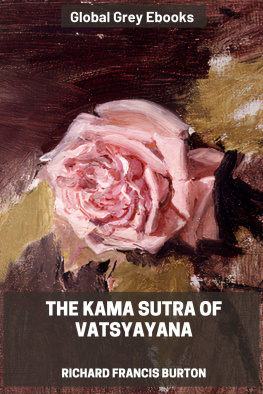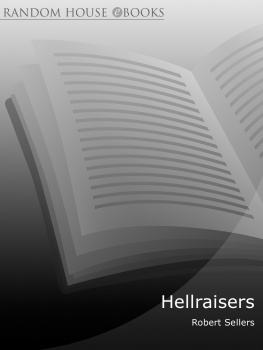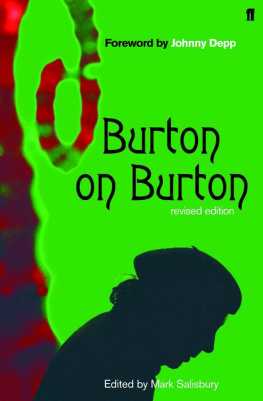Alexandria, 1853
SIR RICHARD BURTON
To the Holy Shrines

GREAT JOURNEYS
PENGUIN BOOKS
Published by the Penguin Group
Penguin Books Ltd, 80 Strand, London WC2R 0R L, England
Penguin Group (USA) Inc., 375 Hudson Street, New York, New York 10014, USA
Penguin Group (Canada), 90 Eglinton Avenue East, Suite 700, Toronto, Ontario, Canada M4P 2Y3 (a division of Pearson Penguin Canada Inc.)
Penguin Ireland, 25 St Stephens Green, Dublin 2, Ireland (a division of Penguin Books Ltd)
Penguin Group (Australia), 250 Camberwell Road, Camberwell, Victoria 3124, Australia (a division of Pearson Australia Group Pty Ltd)
Penguin Books India Pvt Ltd, 11 Community Centre, Panchsheel Park, New Delhi 110 017, India
Penguin Group (NZ), 67 Apollo Drive, Mairangi Bay, Auckland 1310, New Zealand (a division of Pearson New Zealand Ltd)
Penguin Books (South Africa) (Pty) Ltd, 24 Sturdee Avenue, Rosebank, Johannesburg 2196, South Africa
Penguin Books Ltd, Registered Offices: 80 Strand, London WC2R 0RL , England
www.penguin.com
Personal Narrative of a Pilgrimage to Al-Madinah and Meccah first published 1855
This extract published in Penguin Books 2007
All rights reserved
Except in the United States of America, this book is sold subject to the condition that it shall not, by way of trade or otherwise, be lent, re-sold, hired out, or otherwise circulated without the publishers prior consent in any form of binding or cover other than that in which it is published and without a similar condition including this condition being imposed on the subsequent purchaser
ISBN: 978-0-14-196320-4
In a crowded field, Sir Richard Burton (182190) may have a fair claim to be the most enjoyable of all Victorians: explorer, spy, linguist, sexologist, translator and a writer of overwhelming talent, Burton spent much of his life wandering the world and writing about it.
This sample from his great early work Personal Narrative of a Pilgrimage to Al-Madinah and Meccah tells the scarcely credible story of how in 1853 Burton successfully disguised himself as a Persian dervish and travelled from Egypt to Medina and Mecca, cities barred to all non-Moslems. These extracts describe his time in Egypt, the memorable crossing of the Red Sea to Yambu and the journey through the Hijaz to Medina, giving a vivid sense of Burtons love of the Arab world. Spellings in the text have not been modernized. Burton is the master of the garrulous footnote and as many of these have been kept as possible: some are so long, however, that it has been necessary to convert them all into endnotes.
To Alexandria
On the evening of April 3, 1853, I left London for Southampton. By the advice of a brother officer, Captain (now Colonel) Henry Grindlay, of the Bengal Cavalry, little thought at that time the adviser or the advised how valuable was the suggestion! my Eastern dress was called into requisition before leaving town, and all my impedimenta were taught to look exceedingly Oriental. Early the next day a Persian Prince, accompanied by Captain Grindlay, embarked on board the Peninsular and Oriental Companys magnificent screw steamer Bengal.
A fortnight was profitably spent in getting into the train of Oriental manners. For what polite Chesterfield says of the difference between a gentleman and his reverse, namely, that both perform the same offices of life, but each in a several and widely different way is notably as applicable to the manners of the Eastern as of the Western man. Look, for instance, at that Indian Moslem drinking a glass of water. With us the operation is simple enough, but his performance includes no fewer than five novelties. In the first place he clutches his tumbler as though it were the throat of a foe; secondly, he ejaculates, In the name of Allah the Compassionate, the Merciful! before wetting his lips; thirdly, he imbibes the contents, swallowing them, not sipping them as he ought to do, and ending with a satisfied grunt; fourthly, before setting down the cup, he sighs forth, Praise be to Allah! of which you will understand the full meaning in the Desert; and, fifthly, he replies, May Allah make it pleasant to thee! in answer to his friends polite Pleasurably and health! Also he is careful to avoid the irreligious action of drinking the pure element in a standing position, mindful, however, of the three recognised exceptions, the fluid of the Holy Well Zemzem, water distributed in charity, and that which remains after Wuzu, the lesser ablution. Moreover, in Europe, where both extremities are used indiscriminately, one forgets the exclusive use of the right hand, the manipulation of the rosary, the abuse of the chair, your genuine Oriental gathers up his legs, looking almost as comfortable in it as a sailor upon the back of a high-trotting horse the rolling gait with the toes straight to the front, the grave look and the habit of pious ejaculations.
Our voyage over the summer sea was eventless. In a steamer of two or three thousand tons you discover the once dreaded, now contemptible, stormy waters only by the band a standing nuisance be it remarked performing
There we lay
All the day,
In the Bay of Biscay, O!
The sight of glorious TrafalgarGib is, probably, better known to you, by Thophile Gautier and Eliot Warburton, than the regions about Cornhill; besides which, you anchor under the Rock exactly long enough to land and to breakfast. Malta, too, wears an old familiar face, which bids you order a dinner and superintend the iceing of claret (beginning of Oriental barbarism), instead of galloping about on donkey-back through fiery air in memory of St Paul and White-Cross Knights. But though our journey might be called monotonous, there was nothing to complain of. The ship was in every way comfortable; the cook, strange to say, was good, and the voyage lasted long enough, and not too long. On the evening of the thirteenth day after our start, the big-trowsered pilot, so lovely in his deformities to western eyes, made his appearance, and the good screw Bengal found herself at anchor off the Headland of Clay.
Having been invited to start from the house of a kind friend, John W. Larking, I disembarked with him, and rejoiced to see that by dint of a beard and a shaven head I had succeeded, like the Lord of Geesh, in misleading the inquisitive spirit of the populace. The mingled herd of spectators before whom we passed in review on the landing-place, hearing an audible Alhamdolillahcarriage, fought our way through the donkeys, and in half an hour found ourselves, chibk in mouth and coffee-cup in hand, seated on the dwn of my friend Larkings hospitable home.
Wonderful was the contrast between the steamer and that villa on the Mahmudiyah canal! Startling the sudden change from presto to adagio life! In thirteen days we had passed from the clammy grey fog, that atmosphere of industry which kept us at anchor off the Isle of Wight, through the loveliest air of the Inland Sea, whose sparkling blue and purple haze spread charms even on N. Africas beldame features, and now we are sitting silent and still, listening to the monotonous melody of the East the soft night-breeze wandering through starlit skies and tufted trees, with a voice of melancholy meaning.
And this is the Arabs Kayf. The savouring of animal existence; the passive enjoyment of mere sense; the pleasant languor, the dreamy tranquillity, the airy castle-building, which in Asia stand in lieu of the vigorous, intensive, passionate life of Europe. It is the result of a lively, impressible, excitable nature, and exquisite sensibility of nerve; it argues a facility for voluptuousness unknown to northern regions, where happiness is placed in the exertion of mental and physical powers; where
Next page









